Monty Don
has encouraged pet owners to use caution with certain plants that might pose risks to their dogs as he gets ready to present his canine-friendly garden at the
Chelsea Flower Show
.
The horticulturalist and
BBC
The host of Gardeners’ World has joined forces with the Royal Horticultural Society (RHS) to create his inaugural—and hopefully final—garden at Chelsea, designed specifically with canine companions in mind. This space includes elements such as a lawn, shallow pools for them to cool off in, and shady spots under trees.
Don supported having potentially harmful plants like alliums and foxgloves in the garden for their flowers, stating that he has grown them with his pets without issues in his personal garden.
The RHS and Radio 2 dog garden, which won’t undergo judging, will move to the nearby Battersea Dogs & Cats Home following the renowned event held at the Chelsea Hospital in the western part of the city.
London
.
Don, aged 69, mentioned that they would take out any plants the organization didn’t wish to keep for the landscaping project.
The horticulturist, who has been presenting at Chelsea since 1990 and has continuously reported on the event for the BBC for over ten years, mentioned that constructing the garden was a profoundly humbling experience. This process greatly increased his admiration for both the designers and creators of gardens featured at RHS Chelsea.
At the location where his garden is currently being built and remains largely unseen, he stated: “Regardless of the type of garden or its quality—whether it turns out well or not—it involves an incredible amount of effort due to all the intricate details one needs to focus on.”
He mentioned that he was excited about returning to present coverage for the upcoming week’s show following his side gig as a designer, referring to it as ‘working extra’.
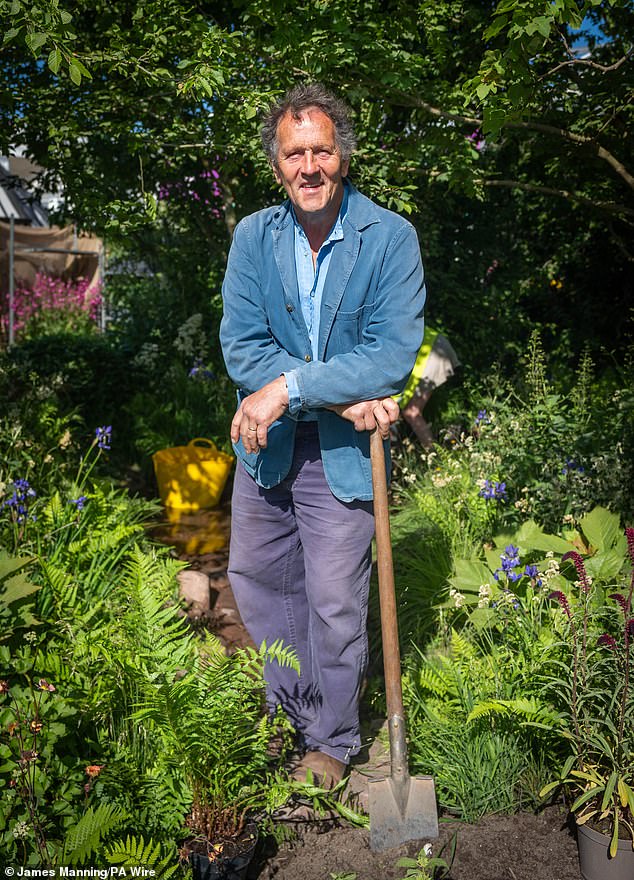
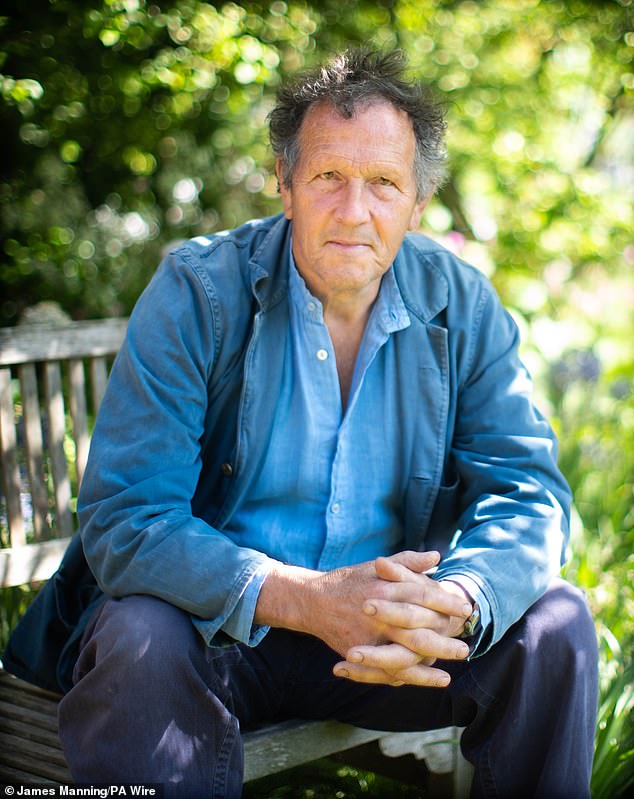
I now truly understand the entire process. It turns out I required this experience, which is quite humbling.
Don, initially contacted by the RHS to create a pet-friendly garden, stated that he wanted this undertaking, done alongside horticulturist Jamie Butterworth, to convey nothing but an appreciation for dogs without any additional messages.
I desired to view a garden at Chelsea that had no particular message, wasn’t positioned in an exotic setting, but rather stood squarely rooted in 2025 within England. This garden would be brimming with plants that I possessed or ones readily available at any nearby garden center for everyone. Additionally, it should feature trees or shrubs that are indigenous or well-acclimated to this nation.
The lawn plays a key role in the storyline and is encircled by plantings that form varying routes for dogs to navigate through the garden. Additionally, there is a spacious open-sided “doghouse” containing an aged couch where the creatures can seek refuge.
The garden includes extensive areas of tall meadow grass where dogs can relax, noted Don, adding that Radio 2 host Jo Wiley proposed incorporating a section of water for dogs to splash around in, drawing from her own experiences with her animals, Don mentioned.
The garden exudes a playful vibe, thanks to the use of dogwood and spherical alliums that resemble the ball-shaped toys dogs enjoy playing with. Additionally, terracotta pots adorned with paw prints from Don’s dog, Ned—who often follows him around his garden featured on Gardeners’ World—add an extra touch of whimsy.
However, even though the lawn appears as if it has been utilized by both dogs and humans, the team hasn’t gone so far as to include actual dig holes or ‘urine rings.’
And Don stated, “In the garden, there are some plants that are actually toxic for dogs.”
Nevertheless, all the plants mentioned are ones that you can find in my garden, and I have always owned dogs.
My perspective on this is that the primary plant I am concerned about is yew, but we don’t have that in our garden.
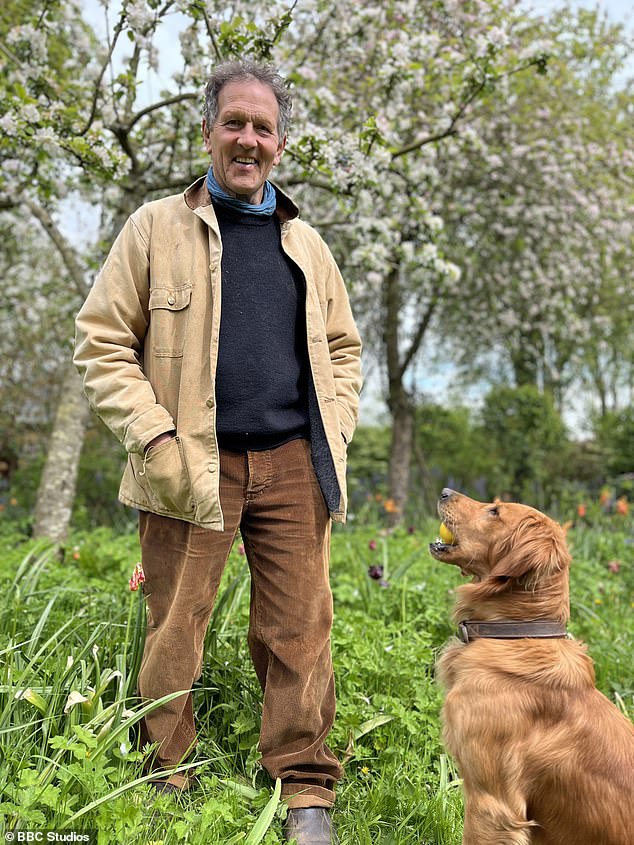
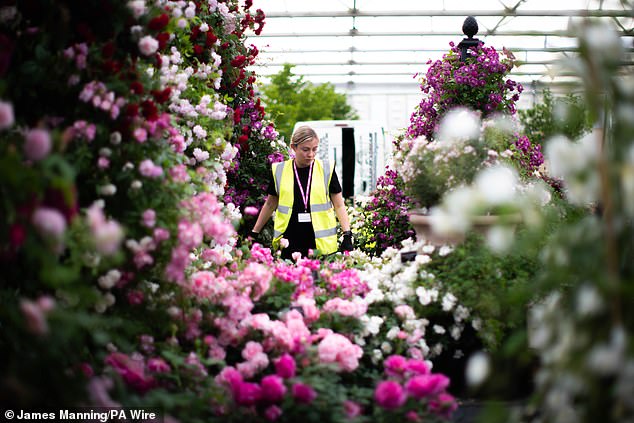
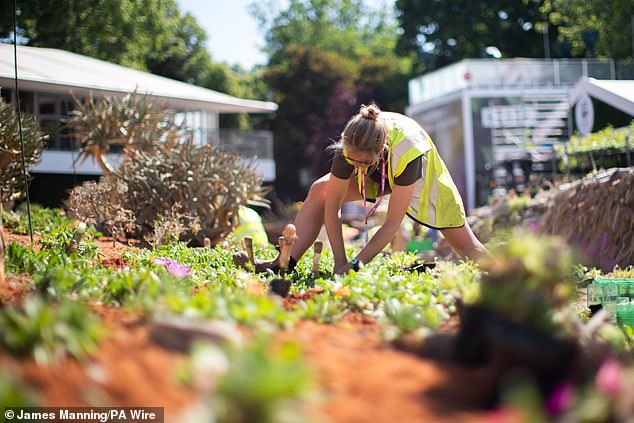
‘Based on my experiences, both dogs and their owners tend to be reasonable.’
Don stated: “Our task is to create an exquisite garden for Chelsea. Only my dogs or those explicitly invited will be permitted entry, and they must remain leashed and well-controlled.”
“When it comes to Battersea, we won’t include any plants that Battersea doesn’t wish to host, as we’ll eliminate those deemed toxic for their dogs,” he explained.
We aren’t claiming these plants are entirely harmless; why all the concern? All I’m stating is based on my experience over the past 65 years of having dogs, I haven’t encountered any issues with them.
He mentioned that numerous common tasks like slicing food with knives in the kitchen, operating a vehicle, or even walking across the street posed greater risks compared to these plants being harmful to dogs.
He added, “Be reasonable, avoid getting overly emotional, yet don’t overlook it.”
He additionally mentioned that dog owners who enjoy gardening shouldn’t anticipate having an immaculate lawn since ‘those two things do not go together’, and suggested that people who prefer their pets not trampling over flower beds could install short fences or hedges along edges or corners to prevent this behavior.
A representative from RHS mentioned that the primary purpose of the dog garden was to spread happiness and pleasure.
Nevertheless, since RHS Chelsea is an excellent venue for inspiration and education, many might not realize that several typical garden plants can be toxic to dogs if ingested. Thus, both the RHS and Monty are urging individuals to stay informed yet practical when it comes to having dogs in their domestic gardens.
The garden aims to raise awareness about monitoring pets around plants. Ensure they do not consume or disturb the plants in the border areas. As with all situations, if you notice your pet eating something within the garden and observe any behavioral changes, or if you feel concerned or uncertain, contact a veterinarian immediately.
They included: “The garden will continue to thrive at Battersea, where specialists from the organization will meticulously choose dog-safe, nontoxic plants to ensure that rescued dogs can relish them for many years.”
Read more


